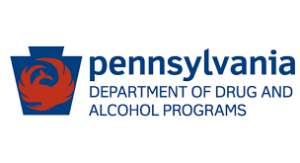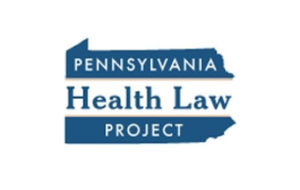PA Health Policy Update for Friday, June 3
The following is an update of selected state health policy developments in Pennsylvania for the week of May 31 to June 3, 2022. (Some of the language used below is taken directly from state documents.)
 General Assembly
General Assembly
- The state House and Senate will return to Harrisburg for session the week of June 6. The Senate will be in session on Monday (6/6), Tuesday (6/7), and Wednesday (6/8). The House will be in session on Tuesday (6/7), Wednesday (6/8), and Thursday (6/9).
- The House Health Committee will hold a joint hearing with the Environmental Resources & Energy Committee on “Oil and gas byproducts: powering modern medicine and our healthcare system.” The hearing will take place on Tuesday, June 7 at 10:00 a.m.
- The House Insurance Committee will hold an informational meeting on Wednesday, June 8 at 10:00 a.m. to examine cybersecurity and insurance data security.
- The Senate Health & Human Services Committee will meet on Tuesday, June 7 at 10:30 a.m. to consider the following bills.
- Senate Bill 571, which establishes a uniform time-frame for distribution of SNAP benefits.
- Senate Bill 1198, which seeks to promote and improve the availability of and access to assisted living residences.
- Senate Bill 1202, which requires health insurers to cover the use of medically prescribed pasteurized donor human milk in inpatient and outpatient settings for children under the age of 12 months.
- House Bill 2401, which makes permanent two COVID-19 waivers that permit non-physician practitioners to order and oversee orders for home health care services and permits the continued use of remote supervisory visits by registered nurses.
Revenue Collection Update
The Independent Fiscal Office (IFO) has released its Monthly Revenue Update for May. General Fund revenue collection exceeded estimate by $459.1 million for the month. For the fiscal year to date Pennsylvania has received $5.5 billion more than projected. The IFO reported that increased revenue collections continue to be driven by strong sales and use tax, personal income tax, and corporate net income tax payments.
 Department of Human Services
Department of Human Services
- The Department of Human Services (DHS) has published a Medical Assistance Bulletin to inform Medical Assistance providers that it has added a CPT code to the MA fee schedule for the administration of a third dose of the Pfizer pediatric COVID-19 vaccine. Find that notice here. The notice is retroactive to January 3.
- DHS has published a Medical Assistance Bulletin to inform Medical Assistance providers that it has added CPT codes to the MA fee schedule for the administration of Pfizer’s ready-to-use novel COVID-19 vaccine. Find that notice here. The notice is retroactive to January 3.
- The managed care delivery system subcommittee of DHS’s Medical Assistance Advisory Committee has posted a draft file note summarizing its May 12 public meeting. Find that draft here.
Centers for Medicare & Medicaid Services
The Centers for Medicare & Medicaid Services (CMS) has released a new tool states can use to prepare for the eventual end of the COVID-19 public health emergency and return to normal Medicaid and CHIP eligibility and enrollment operations. This tool highlights the ten fundamental actions states need to complete to prepare for unwinding when the Medicaid continuous enrollment requirement ends. Find it here.
CMS has issued a letter to state Medicaid programs updating its 2022 SSI and spousal impoverishment standards. These measures affect financial eligibility rules (the “spousal impoverishment rules”) that apply when married individuals seek coverage of certain long-term services and supports. Find the letter and the new standards here.
 Department of Health
Department of Health
The Department of Health is working with Philadelphia’s Department of Public Health to confirm and investigate what appears to be the first case of monkeypox in Pennsylvania and one of only 21 currently suspected in the U.S. Learn more from this Philadelphia Department of Public Health news release.
The Department of Health’s Bureau of Epidemiology and Bureau of Facility Licensure and Certification have notified skilled nursing facilities of modifications of the reporting process for skilled nursing facilities with ongoing outbreaks of COVID-19. Find that notice here.
COVID-19: By the Numbers
- For the first time in more than two months daily COVID-19 case counts fell, declining from a seven-day average of 4238 on May 25 to 3552 on June 1.
- The seven-day average of COVID-19-related deaths fell by more than half, from 36 to 15, over the same period of time.
- Despite the decline in new cases, the number of Pennsylvanians hospitalized with COVID-19 rose, but only slightly (three percent) over the past week.
- The number of these patients on ventilators and hospital intensive care units held steady over the past week.
- Sixty-six of Pennsylvania’s 67 counties are currently experiencing high rates of community transmission of COVID-19; Juniata County was the exception, with a substantial rate of community transmission.
 Department of Drug and Alcohol Programs
Department of Drug and Alcohol Programs
The Department of Drug and Alcohol Programs has awarded a grant of $1.4 million to continue the Pennsylvania Perinatal Quality Collaborative’s work in improving perinatal health outcomes. Learn more about the grant, the program, and the grant recipient from this department news release.
Independent Regulatory Review Commission
Pennsylvania’s Independent Regulatory Review Commission has issued comments on proposed regulations governing long-term-care facilities that were published on March 19. See these comments in this Pennsylvania Bulletin notice.
Stakeholder Events
Department of Human Services – Medical Assistance Advisory Committee – Managed Care Delivery System Subcommittee – June 9
The Medical Assistance Advisory Committee’s managed care delivery system subcommittee will meet virtually on Thursday, June 9 at 10:00. Go here for the meeting agenda and information about how to participate.
Department of Human Services – Long-Term Care Learning Network/Nursing Facilities – June 9
DHS’s Long-Term Care Learning Network, part of its quality strategy for nursing facilities, is offering in collaboration with the Community HealthChoices managed care organizations and the Jewish Healthcare Foundation a special population webinar on polypharmacy challenges in nursing homes on Thursday, June 9 at 2:00. The webinar is especially targeted for skilled nursing facility medical directors, directors of nursing, pharmacy staff, and recreational therapy. To learn more about the virtual webinar and how to participate, go here.
Department of Aging – Pennsylvania Long-Term Care Council – June 9
The Department of Aging’s Pennsylvania Long-Term Care Council will meet in Harrisburg on Thursday, June 9 at 10:00; the meeting also will be available virtually. For information on the location of the meeting and how to participate virtually, see this Pennsylvania Bulletin notice.
Department of Human Services – Long-Term Care Learning Network/Nursing Facilities – June 23
DHS’s Long-Term Care Learning Network, part of its quality strategy for nursing facilities, is offering in collaboration with the Community HealthChoices managed care organizations and the Jewish Healthcare Foundation a “learning collaborative” webinar in which participants in past Long-Term Care Learning Network events share information about best practices for avoiding hospitalizations from nursing homes. The webinar will be held on Thursday, June 23 at 2:00 and the deadline to sign up to share best practices is June 1. For further information about the webinar, sharing best practices, and participating virtually, go here.
DHS – Medical Assistance Advisory Committee – Managed Long-Term Services and Supports Subcommittee Meeting – July 6
The managed long-term services and supports subcommittee of DHS’s Medical Assistance Advisory Committee will meet in Harrisburg on Wednesday, July 6 at 10:00; the meeting also will be available virtually. For further information about the location of the meeting and how to participate virtually, see this announcement.
 Included in this month’s issue are articles about:
Included in this month’s issue are articles about: Governor Wolf
Governor Wolf Independent Regulatory Review Commission
Independent Regulatory Review Commission Around the State
Around the State Governor Wolf
Governor Wolf Department of Health
Department of Health Included in this month’s edition are articles about:
Included in this month’s edition are articles about: Included in this month’s edition are articles about:
Included in this month’s edition are articles about: